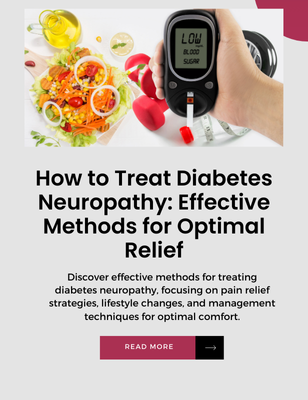Eating the right foods can have a big impact on how our brains work. What we put on our plates affects our mood, memory, and thinking skills. Foods rich in omega-3 fats, antioxidants, and B vitamins are some of the best choices for a healthy mind.

Certain foods can boost brain function and enhance mental clarity. Fatty fish, berries, nuts, and leafy greens are top picks for brain health. These foods feed our brains the nutrients they need to work well.
A balanced diet with lots of fruits, veggies, and whole grains is key for mental wellness. Staying hydrated and limiting junk food can also help keep our minds sharp. By making smart food choices, we can support our brain health and feel our best.
Key Takeaways
- Omega-3 fats, antioxidants, and B vitamins are crucial for brain health
- A diet rich in fruits, vegetables, and whole grains supports mental wellness
- Proper hydration and limiting processed foods help maintain cognitive function
Key Takeaways
Eating certain foods can boost brain health and mental function. These foods provide key nutrients that support cognitive abilities.
Fatty fish like salmon and sardines contain omega-3 fatty acids. These fats are crucial for brain cell structure and function.
Berries, especially blueberries, are rich in antioxidants. They help protect brain cells from damage and may improve memory.
Leafy green vegetables provide important vitamins and minerals. Spinach, kale, and collard greens support overall brain health.
Nuts and seeds offer healthy fats, vitamins, and minerals. Walnuts, almonds, and pumpkin seeds are particularly good choices.
Dark chocolate contains flavonoids that may enhance memory and slow age-related mental decline.
Whole grains provide steady energy for the brain. They help maintain focus and concentration throughout the day.
Eggs contain choline, a nutrient essential for brain health. Choline helps produce neurotransmitters that regulate mood and memory.
Turmeric, a spice used in curry, has anti-inflammatory properties. It may help protect the brain from age-related damage.
Staying hydrated is crucial for optimal brain function. Water helps deliver nutrients to brain cells and remove waste products.
Understanding the Mind-Body Connection
The foods we eat have a big impact on how our brains work. What we put on our plates affects our mood, memory, and thinking skills. Good nutrition helps keep our minds sharp and our emotions balanced.
The Science of Neuro-Nutrition
Nutrients in food play a key role in brain health. The brain needs certain chemicals to work well. These come from the foods we eat.
For example, omega-3 fats help build brain cells. They’re found in fish, nuts, and seeds. B vitamins support nerve function and are in whole grains and leafy greens.
Antioxidants protect brain cells from damage. Berries and dark chocolate are good sources. Protein provides amino acids that make brain chemicals. Eggs, lean meats, and beans are protein-rich options.
How Diet Affects Mood and Cognition
What we eat can change how we feel and think. Some foods boost mood and focus. Others can make us feel sluggish or foggy.
Complex carbs from whole grains help keep energy steady. This helps mood and concentration. Healthy fats support brain cell communication. This can improve memory and learning.
Too much sugar or processed food may lead to mood swings. It can also make it hard to focus. Eating regular, balanced meals helps keep blood sugar stable. This supports a calm, clear mind.
Staying hydrated is also key for brain function. Even mild dehydration can affect mood and thinking skills.
Macronutrients and Mental Health
Macronutrients play a crucial role in brain function and mental well-being. The right balance of fats, carbohydrates, and proteins can support mood, cognition, and overall mental health.
Healthy Fats for Brain Function
Fats are essential for healthy brain functioning. The brain is made up of about 60% fat, making it crucial for proper neural function.
Omega-3 fatty acids, found in fatty fish like salmon and sardines, are particularly important. These fats help build brain cell membranes and reduce inflammation.
Other good sources of healthy fats include:
- Avocados
- Nuts (especially walnuts)
- Olive oil
- Seeds (like flaxseeds and chia seeds)
These foods can help improve mood, memory, and cognitive performance. Eating a diet rich in healthy fats may also lower the risk of depression and anxiety.
Complex Carbohydrates and Mood Stability
Complex carbohydrates are important for mental health. They provide a steady source of energy for the brain, helping to stabilize mood and improve focus.
Good sources of complex carbs include:
- Whole grains (brown rice, quinoa, oats)
- Legumes (beans, lentils)
- Sweet potatoes
- Fruits
These foods help regulate blood sugar levels, which can affect mood and energy. They also contain fiber, which supports gut health. A healthy gut is linked to better mental health.
Carbohydrate intake affects cognitive function and can influence serotonin production, a neurotransmitter that regulates mood.
Proteins and Neurotransmitter Production
Proteins are made up of amino acids, which are essential for producing neurotransmitters. These chemical messengers in the brain affect mood, sleep, and cognitive function.
Good protein sources include:
- Lean meats
- Fish
- Eggs
- Dairy products
- Legumes
- Nuts and seeds
Tryptophan, an amino acid found in protein-rich foods, is particularly important. It helps produce serotonin, which can improve mood and sleep quality.
Chronic stress may affect serotonin function, making protein intake even more crucial for mental health. Eating protein throughout the day can help maintain stable energy levels and support brain function.
Micronutrients Critical for Cognitive Health
Certain vitamins and minerals play key roles in brain function and mental wellbeing. These micronutrients support cognitive processes, mood regulation, and overall mind health.
Vitamins Essential for Mental Wellness
B vitamins are crucial for brain health. Vitamin B12 helps make red blood cells and keeps nerves working properly. Low B12 levels can lead to confusion and memory problems.
Folate (B9) is needed to make brain chemicals that affect mood and sleep. Not getting enough folate may increase the risk of depression.
Vitamin D supports brain cell growth and function. Low vitamin D is linked to a higher chance of cognitive decline in older adults.
Vitamin E acts as an antioxidant in the brain. It protects brain cells from damage and may help slow mental decline.
Minerals That Support Cognitive Function
Iron is vital for brain development. It helps carry oxygen to the brain and is needed to make brain chemicals. Too little iron can cause fatigue and trouble focusing.
Zinc aids in brain cell communication. It’s important for memory formation and learning new information.
Magnesium supports brain plasticity, which helps the brain form new connections. It may improve short-term and long-term memory.
Selenium acts as a powerful antioxidant in the brain. It helps protect brain cells from damage and may lower the risk of cognitive decline.
Superfoods for Optimal Brain Health
Certain foods can boost brain function and support mental well-being. These nutrient-dense options provide key vitamins, minerals, and compounds that nourish the mind.
Antioxidant-Rich Berries
Berries pack a powerful punch for brain health. Blueberries, strawberries, and blackberries contain high levels of antioxidants. These compounds protect brain cells from damage and reduce inflammation.
Eating berries regularly may improve memory and cognitive function. Studies show they can delay age-related mental decline. The vibrant colors of berries come from anthocyanins, which boost brain signaling.
Try adding a handful of mixed berries to breakfast or as a snack. Frozen berries work well in smoothies year-round. Aim for at least 1/2 cup of berries several times per week.
Leafy Greens and Their Cognitive Benefits
Dark leafy greens offer major brain benefits. Spinach, kale, and collards are rich in vitamins and minerals that support mental function.
These greens contain folate, which aids in producing neurotransmitters. They also provide vitamin K, linked to sharper memory in older adults. The high nutrient content helps protect against cognitive decline.
Include leafy greens in salads, smoothies, or sautéed as a side dish. Aim for 1-2 servings daily. Try different varieties to get a range of nutrients.
Nuts and Seeds for Brain Power
Nuts and seeds provide healthy fats and other nutrients crucial for brain health. Walnuts, almonds, and pumpkin seeds are top choices.
These foods contain omega-3 fatty acids, which support brain function. They also offer vitamin E, an antioxidant that protects brain cells. The zinc in pumpkin seeds aids in memory and thinking skills.
A small handful of mixed nuts or seeds makes a great daily snack. Add them to oatmeal, yogurt, or salads for extra crunch and nutrients. Choose raw or dry-roasted varieties without added salt or sugar.
Hydration and Its Impact on Mental Clarity
Water is essential for a healthy mind. The brain is about 75% water, and proper hydration is crucial for its function.
Dehydration can negatively affect mental performance. Even mild dehydration can impair cognitive function, including attention, memory, and decision-making.
Staying hydrated helps maintain mental clarity. It supports:
- Concentration
- Alertness
- Reaction time
- Short-term memory
The amount of water needed varies per person. Factors like age, activity level, and climate play a role.
Proper hydration is key for athletes. It enhances endurance and mental focus during physical activities.
Water isn’t the only source of hydration. Many foods contain water and contribute to daily fluid intake. Some hydrating foods include:
- Cucumbers
- Watermelon
- Lettuce
- Strawberries
Drinking water throughout the day is important. It’s best not to wait until feeling thirsty, as thirst can be a sign of mild dehydration.
Dehydration can affect consciousness in severe cases. It’s important to maintain proper hydration for overall brain health and mental clarity.
The Role of Probiotics in Emotional Well-Being
Probiotics play a key role in supporting mental health and emotional well-being. These helpful bacteria affect mood and brain function through the gut-brain connection. Certain foods rich in probiotics can boost cognitive health.
Gut-Brain Axis and Mood Regulation
The gut-brain axis links the digestive system to mental health. Probiotics in the gut make chemicals that affect mood and brain function. These include serotonin, a feel-good hormone.
Probiotic foods and supplements can help balance gut bacteria. This may ease anxiety, depression, and stress. Studies show some probiotic strains improve emotional well-being.
Good sources of probiotics include:
- Yogurt
- Kefir
- Sauerkraut
- Kombucha
Adding these foods to your diet may boost mood and mental health over time.
Fermented Foods and Cognitive Health
Fermented foods contain probiotics that support brain health. These foods go through a process that creates helpful bacteria. Popular options are yogurt, kimchi, and miso.
Eating fermented foods regularly may:
- Improve memory
- Boost focus
- Reduce brain fog
The probiotics in these foods help reduce inflammation in the body and brain. This supports overall cognitive function. Some studies link fermented food intake to a lower risk of cognitive decline with age.
To get the benefits, try adding 1-2 servings of fermented foods to your daily diet. Start small and increase slowly to let your body adjust.
Plant-Based Diets and Mental Health
Plant-based diets can have positive effects on brain health and mental wellbeing. These diets, rich in fruits, vegetables, and whole grains, provide key nutrients that support cognitive function and emotional balance.
The Benefits of Vegetarian and Vegan Diets on the Brain
Plant-based diets may improve mental health by reducing inflammation in the body and brain. Foods like leafy greens, berries, and nuts contain antioxidants that protect brain cells from damage.
Whole grains and legumes in vegetarian and vegan diets provide steady energy for the brain. This helps maintain stable mood and focus throughout the day.
Plant foods are also rich in fiber. Fiber feeds beneficial gut bacteria, which produce chemicals that affect brain function and mental state.
Some studies suggest vegan diets may lower the risk of depression. The high intake of fruits and vegetables provides nutrients linked to better mental health.
Omega-3 fatty acids from plant sources like walnuts and flax seeds support brain health. They play a role in regulating mood and cognitive abilities.
Impact of Caffeine and Sugar on Mental Health
Caffeine and sugar can affect mental health in different ways. These common ingredients in foods and drinks influence mood, focus, and anxiety levels.
Positive and Negative Effects on Focus and Anxiety
Caffeine can boost focus and alertness in the short term. It may help people feel more awake and productive. Energy drinks containing caffeine and sugar are popular for increasing energy.
But too much caffeine can lead to jitters and anxiety. It may cause sleep problems if consumed late in the day. This can harm mental health over time.
Sugar gives a quick energy boost. But high sugar intake is linked to worse mental health. It can lead to mood swings as blood sugar levels change.
Some people may feel temporary happiness from sugary foods. But this effect doesn’t last. Crashes in energy and mood often follow.
Healthy fats and nutrients are better for brain function than caffeine and sugar. Balanced meals help keep energy and mood stable throughout the day.
Meals and Mindfulness
The way we eat affects our mental health. Mindful eating can boost our mood and brain power.
The Psychology of Eating Habits
Our eating habits shape our minds. Fast food and sugary snacks can make us feel sluggish. Healthy foods give us energy and focus.
Stress often leads to poor food choices. Some people overeat when upset. Others skip meals when anxious. These habits can harm mental health.
Emotions play a big role in what we eat. Happy people tend to make better food choices. Sad or angry people may reach for junk food. Being aware of these links can help us eat better.
Mindful Eating Practices for Mental Health
Mindful eating means paying full attention to our food. It can improve digestion and mental well-being.
Here are some tips for mindful eating:
- Eat slowly and chew well
- Notice the taste, smell, and texture of food
- Turn off screens while eating
- Use smaller plates to control portions
- Stop eating when you feel full
Mindful eating can reduce stress and anxiety. It helps us enjoy our food more. This practice can lead to better food choices over time.
Eating with others can also boost mental health. Shared meals can fight loneliness and depression. They give us a chance to connect and relax.
Supplements for Cognitive Enhancement
Certain supplements may boost brain function and protect mental health. These range from natural compounds to synthetic nootropics. Some show promise for supporting memory, focus, and overall cognitive performance.
Natural Supplements Versus Synthetic Nootropics
Natural cognitive enhancers often come from food sources or herbs. Many contain vitamins, minerals, and antioxidants. Popular options include ginkgo biloba, bacopa monnieri, and lion’s mane mushroom. These may support brain health and mental function.
Synthetic nootropics are lab-made compounds. Examples include modafinil, piracetam, and racetams. These aim to enhance memory, focus, and other cognitive abilities. Some show effects in studies, but long-term impacts need more research.
Natural supplements tend to have fewer side effects. Synthetic nootropics may work faster but carry more risks. It’s important to consult a doctor before trying any cognitive enhancers.
Omega-3 Fatty Acids and Their Link to Neuroprotection
Omega-3 fatty acids play a key role in brain health. They’re found in fatty fish, walnuts, and flaxseeds. Supplements often contain EPA and DHA, two important types of omega-3s.
These compounds help build cell membranes in the brain. They may also reduce brain inflammation and oxidative stress. Studies link omega-3s to better memory and slower cognitive decline in older adults.
Omega-3s support the growth of new brain cells. This process, called neurogenesis, is crucial for learning and memory. Some research suggests omega-3s may help with depression and anxiety too.
Getting enough omega-3s through diet can be hard. Supplements offer a concentrated dose. But it’s best to talk to a healthcare provider about the right amount for individual needs.
Combating Mental Health Disorders With Nutrition
Eating the right foods can help improve mental health. A good diet gives the brain what it needs to work well.
Dietary Recommendations for Anxiety and Depression
A healthy diet may help ease anxiety and depression. Eating foods rich in omega-3 fatty acids can be good for the brain. These include:
- Fatty fish like salmon
- Walnuts
- Flaxseeds
Eating lots of fruits and veggies is also key. They have vitamins that help the brain work better. Dark leafy greens are great picks.
Cutting back on sugar and processed foods may help too. These foods can make mood swings worse. Instead, choose whole grains and lean proteins. They keep blood sugar steady.
Nutritional Strategies for ADHD and Concentration
A balanced diet can help people with ADHD focus better. Protein-rich foods are important. They help make brain chemicals that aid focus. Good choices include:
- Eggs
- Lean meats
- Beans
Iron is also key for concentration. Foods high in iron are:
- Spinach
- Red meat
- Lentils
Some people find that cutting out artificial colors and flavors helps. Eating regular meals and snacks can also aid focus. This keeps blood sugar levels stable throughout the day.
Staying hydrated is crucial too. Even mild dehydration can hurt concentration.
Frequently Asked Questions
Certain foods can boost brain health and cognitive function. Specific nutrients play key roles in supporting memory, focus, and overall mental well-being.
What foods can enhance memory retention and concentration abilities?
Fatty fish like salmon and sardines contain omega-3s that support brain cell communication. Blueberries are packed with antioxidants that may improve memory.
Dark chocolate has caffeine and antioxidants that can enhance focus. Nuts and seeds provide vitamin E, which protects brain cells from damage.
Which items constitute the top ten nutrition choices for optimal mental well-being?
- Fatty fish (salmon, mackerel, sardines)
- Blueberries
- Turmeric
- Broccoli
- Pumpkin seeds
- Dark chocolate
- Nuts (especially walnuts)
- Green leafy vegetables
- Eggs
- Avocados
These foods contain nutrients that support brain health, including omega-3 fatty acids, antioxidants, and vitamins.
What are the leading brain-nourishing foods to consume during study sessions and exams?
Water is crucial for maintaining focus and mental clarity. Whole grains provide steady energy for the brain. Berries offer quick, brain-boosting antioxidants.
Nuts and seeds supply vitamin E and healthy fats. Green tea contains caffeine and L-theanine, which can improve alertness and focus.
Can certain foods significantly improve brain function post-injury or illness?
Omega-3 rich foods like fish oil may help reduce inflammation and support brain cell repair. Turmeric contains curcumin, which has anti-inflammatory properties.
Antioxidant-rich berries can protect brain cells from further damage. Mindful eating of nutrient-dense foods can support overall brain health during recovery.
Which foods should be avoided to maintain good memory and cognitive health?
Highly processed foods with added sugars can negatively impact brain function. Trans fats found in fried foods may increase the risk of cognitive decline.
Excessive alcohol consumption can damage brain cells. High-sodium foods may increase blood pressure, potentially affecting brain health.
What specific nutrients support a healthy brain and where can they be found?
Omega-3 fatty acids, found in fish and flaxseeds, support brain cell structure. Antioxidants in colorful fruits and vegetables protect against oxidative stress.
B vitamins, especially B12 found in animal products, are essential for nerve function. Vitamin E, present in nuts and seeds, helps maintain brain health.
Conclusion
Eating the right foods can boost brain health and mental well-being. A balanced diet rich in nutrients is key. Some top choices include:
- Fatty fish
- Berries
- Leafy greens
- Nuts and seeds
- Whole grains
These foods provide essential vitamins, minerals, and antioxidants. They help protect brain cells and support cognitive function.
The MIND diet combines elements of Mediterranean and DASH diets. It focuses on brain-healthy foods. Studies link it to better mental health and lower risk of cognitive decline.
Staying hydrated and limiting processed foods is also important. A nutritious diet nourishes both body and mind. Small changes in eating habits can make a big difference over time.
Eating well is just one part of maintaining a healthy brain. Regular exercise, quality sleep, and mental stimulation all play crucial roles too. A holistic approach to health supports optimal brain function throughout life.















